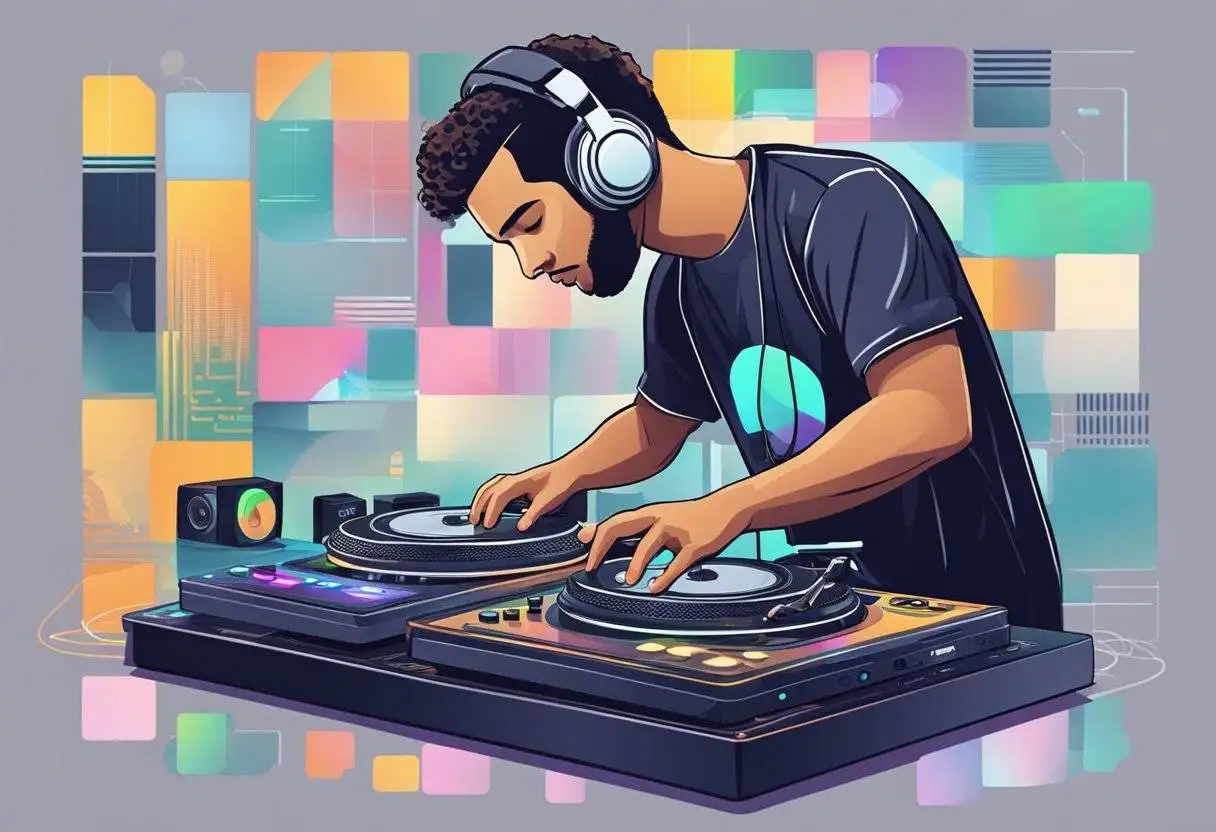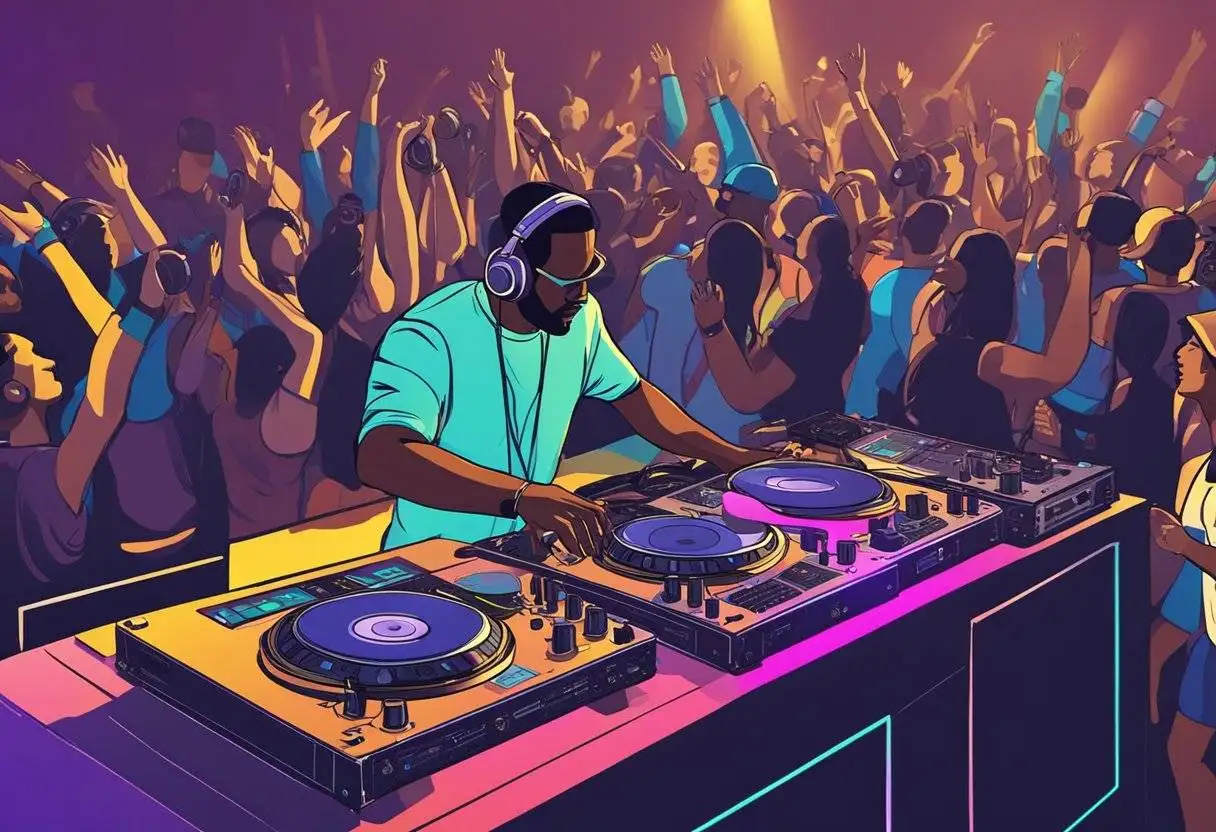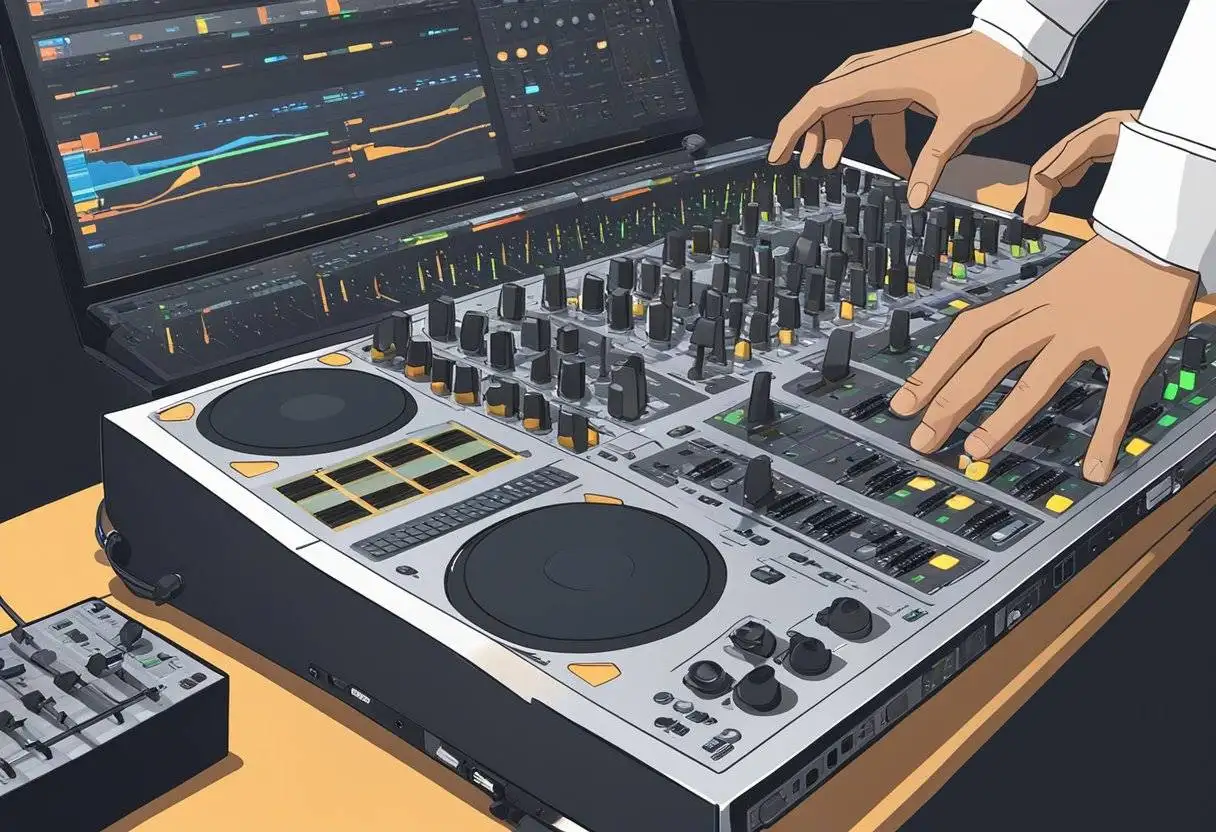As a professional DJ, musicianship blends with entrepreneurship to forge a unique career path. The art of spinning tracks and reading a crowd’s energy is well-known, but what often remains out of the spotlight is the diverse income avenues available to DJs. Earning potential in this field varies as widely as the types of events and venues that host these audio artists, from intimate club gigs to massive festivals.

Monetizing DJ skills involves more than live performances. In the age of digital media, lucrative opportunities arise from producing original tracks, remixes, and curating playlists that resonate with a worldwide audience. DJs also explore revenue through online platforms, teaching workshops, and leveraging their brand for merchandise sales.
Understanding the financial aspect of being a DJ can demystify the profession’s glamour. While top-tier DJs may commandeer hefty fees for a single set, numerous others build a sustainable income by balancing gigs, crafting an online presence, and expanding their brand beyond the turntables.
Revenue Streams for DJs
DJs have various revenue streams, each with different potential earnings and frequencies of gigs. Below are some specific avenues through which I generate income as a DJ.
Club Performances
Clubs offer regular gigs that can significantly contribute to my earnings. Here, income can vary widely depending on the club’s location and my reputation as a club DJ. Nightclubs in major cities often pay more, recognizing the value a proficient DJ adds to their venue.
Wedding DJ Services
Weddings are lucrative events, as couples are willing to invest in ensuring their special day is memorable. My service as a wedding DJ typically includes pre-event planning and performance on the day. Payments for wedding DJ services are often higher than regular club nights due to the personalization and significance of the occasion.
Festival Appearances
Performing at festivals and music festivals can increase my visibility and, subsequently, my net worth. Larger festivals may offer higher compensation, representing a considerable portion of my annual income. The pay varies depending on the festival’s size and the slot I’m given.
Live Events and Concerts
Live events, ranging from concerts to corporate functions and private parties, can offer a stable income. These events require a diverse skill set to adapt to various audiences and settings. My revenue from such gigs helps to maintain a steady cash flow and can often supplement quieter periods in other areas of my career.
Digital Revenue Channels

In the evolving music industry, DJs have leveraged digital platforms to generate income beyond traditional live performances. Here’s how I take advantage of digital revenue channels to sustain my career as a DJ.
Streaming and Online Platforms
Streaming is a primary contributor to my digital income. I upload my DJ mixes and tracks to platforms like Spotify and Apple Music, where I earn royalties each time someone streams my music. Additionally, I maintain an active YouTube channel where ad revenues supplement my earnings. Social media plays a crucial role in promoting my content and reaching a wider audience, which directly impacts my streaming numbers and revenue.
Music Production and Sales
I invest time in music production, creating EDM tracks and albums with professional software on my laptop. After producing music, I either self-release it on platforms like Bandcamp or work with record labels to distribute my work. Whether it’s direct music sales or through streaming platforms, each sold copy or stream adds to my income. Moreover, I explore the world of royalty-free and stock music, offering my songs for purchase to be used in various media projects.
Online Tutorials and Courses
The demand for knowledge sharing has never been higher, and so I develop online tutorials and courses to teach others the intricacies of DJing and music production. I host these on platforms like Udemy and my website, turning my expertise into a revenue stream. Additionally, I share insights on product consulting and equipment use, and even branch out into podcasting and syndicating radio shows. By diversifying my digital offerings, I tap into different areas of the e-learning market.
Brand Expansion and Networking
As a DJ, expanding your brand and networking are crucial methods to increase income streams. Solidifying a reputation in the music industry opens up opportunities for sponsorships and capitalizing on your following. My relationships with promoters and industry professionals prove fundamental for growth and monetary gain.
Sponsorships and Endorsements
I secure sponsorships by leveraging my following and exposure. Brands are keen to associate with DJs who can influence trends and reach wide audiences, especially in the EDM scene. A sponsorship deal might include me endorsing audio equipment, which can be valuable for both visibility and financial benefits.
Product Consulting and Licensing
I offer product consulting services due to my expertise and experience. My input can shape product development, leading to licensing agreements. Here, companies use my name and brand to sell their products, providing me a percentage of sales or a fixed fee for the use of my brand.
Diversifying into Related Markets
I diversify into markets such as ghost producing or creating my line of merchandise. This move widens my revenue sources beyond performance fees. It’s not just about playing live sets; as a superstar DJ, I leverage every facet of my brand to maximize earnings from multiple streams.
Equipment and Experience

To thrive in the DJ world, I’ve learned that having the right equipment and honing my skills are crucial for success. Whether I’m an EDM DJ spinning at a club or a mobile DJ orchestrating wedding receptions, the tools of the trade and the experience I bring to the table set the stage for my career advancement.
Investing in DJ Equipment
The cornerstone of a professional disc jockey’s arsenal is high-quality DJ equipment, which typically includes turntables, mixers, controllers, and sometimes even advanced lighting systems to enhance performances. As an EDM DJ, I find that investing in durable and versatile equipment allows me to seamlessly blend tracks and engage my audience.
- Laptops: Essential for digital setups
- Turntables: For traditional vinyl or modern digital records
- Mixers: Mix multiple audio tracks
- Controllers: For software integration and sound manipulation
- Lighting: To create an immersive experience
Each piece of equipment is a building block for a DJ’s unique sound, whether they’re laying down hip hop beats or rock anthems.
Building Skills and Portfolio
Beyond the gear, my experience and ability to grow a following are what truly propel my career forward. An audio portfolio showcasing my diverse range of styles, from hip hop to rock, demonstrates my adaptability and skill, which is attractive to both club and wedding DJs alike. To build my portfolio, I perform at varied events to gain exposure and refine my sound.
- Mobile DJs: Adaptability to different event types
- Radio DJs: Ability to curate for a broad audience
- Club DJs: Creating energizing experiences
Connecting with my audience is paramount, as their response feeds into my development as a disc jockey. It’s the experiences from every gig that I carry forward, each one refining my techniques and widening my opportunities within the realm of DJing.
Frequently Asked Questions

In this section, I’ll guide you through some of the key questions about the financial aspects of the DJ profession, shedding light on the diverse income opportunities and potential earnings in this field.
What are common sources of income for DJs?
DJs primarily earn through live performances at clubs, festivals, private events, and weddings. Additionally, they monetize their skills by producing music, hosting radio shows, and teaching DJing courses. Diversifying income streams is crucial for financial stability in this career.
How can DJs earn passive income?
Passive income for DJs often comes from royalties on original tracks, online DJ sets or instructional videos, and music streaming. Selling branded merchandise and sample packs also contributes to a DJ’s passive income, ensuring earnings continue beyond live gig events.
What are typical earnings for a DJ per set?
Earnings per set vary widely based on factors such as experience, location, and event type. On average, a professional DJ might charge from a few hundred to several thousand dollars per set. High-profile DJs can command significantly more, reflecting their drawing power and reputation.
How do the incomes of techno and EDM DJs compare?
Techno and EDM DJs can both achieve high-income levels, especially those with a strong following and brand. While earnings can be similar, EDM DJs often play larger venues and festivals, potentially leading to higher income opportunities compared to techno DJs who often thrive in niche, underground scenes.
What are some possible side hustles for DJs?
Side hustles for DJs include teaching DJing, music production, or offering audio editing and mastering services. Others may engage in event promotion, operate DJ equipment rental services, or work as freelance music consultants for clubs and festivals.
Why can a successful DJ career be quite lucrative?
A successful DJ career can be lucrative due to high demand for entertainment, the global reach of music, and the potential for brand endorsements. An established DJ with a distinctive sound and strong fanbase can leverage these factors to create multiple income streams and financial success.
